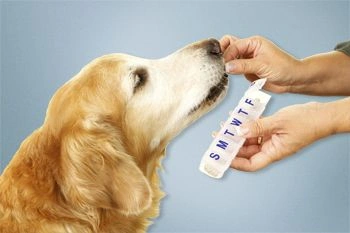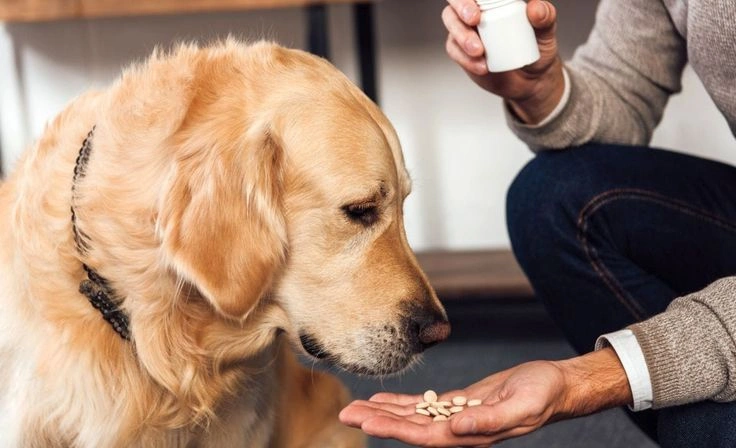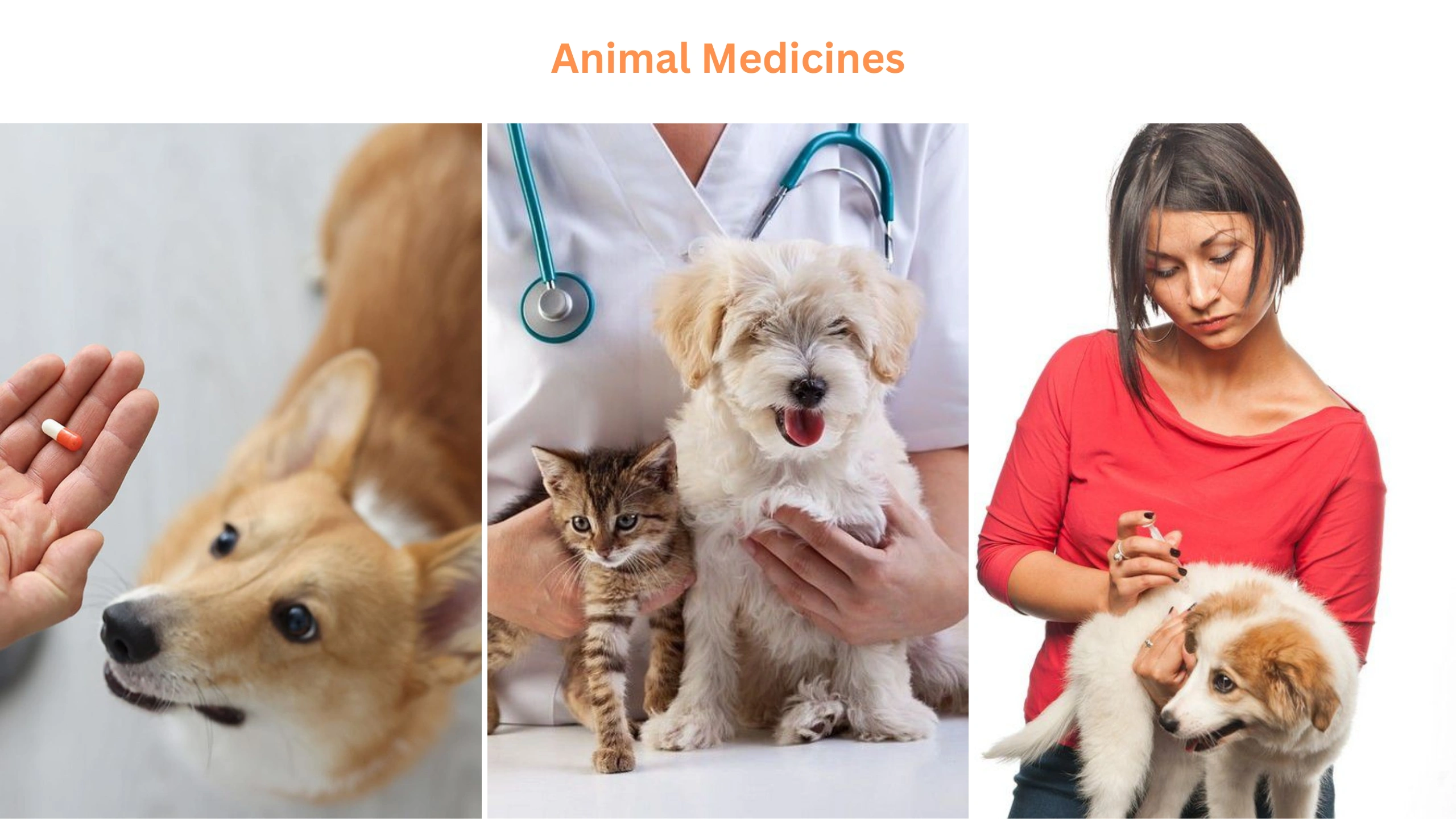Last Updated on February 7, 2024 by Aftab Tariq
Animal medicines play a crucial role in ensuring the well-being of animals and promoting animal welfare. These medicines address various conditions, from common ailments to more complex diseases.
Farmers and ranchers rely on these medications to safeguard the health of their animals, contributing to the overall quality of the food supply and preventing the spread of diseases. Flea and tick control is essential to animal care, protecting animals and humans from potential health risks.

Different types of medications, including biologics and vaccines, are developed by pharmaceuticals to combat specific diseases and enhance the overall health of animals. Pet owners and veterinarians play a vital role in administering these medicines and working together to maintain the health of animals.
In this interconnected web of animal healthcare, the collaboration between pharmaceuticals, veterinarians, farmers, and pet owners ensures a holistic approach to animal medicine, fostering a healthier environment for animals and humans.
List of 10 Animal Medicines
Here is a list of the top 10 animal medicine names along with their explanations.
1. Diphenhydramine

Diphenhydramine is a commonly employed medication for treating acute allergy symptoms in animals. The standard dosing regimen typically involves administering 2 to 4 mg/kg orally every 8 to 12 hours.
This routine use of diphenhydramine aids in alleviating allergic reactions, offering relief to pets experiencing symptoms such as itching or swelling due to allergies. Veterinary professionals often integrate this medication into comprehensive treatment plans to effectively manage acute allergic responses in animals.
2. Metronidazole

Though lacking FDA approval for animal use, Metronidazole is frequently prescribed to address Giardia infection. The recommended dosage is 15 to 20 mg/kg per oral administration every 12 hours, typically 5 to 7 days of treatment duration.
While not officially sanctioned for animals, this medication plays a crucial role in veterinary practice, aiding in the effective management of Giardia infections in pets.
3. Famotidine

Animal medicines such as famotidine and metronidazole are commonly prescribed together to alleviate upset stomach issues in animals. The standard dosage recommendation ranges from 0.5 to 1 mg/kg, administered orally every 12 to 24 hours.
This combination of animal medicines proves beneficial in addressing gastrointestinal concerns, providing a comprehensive approach to managing digestive discomfort in pets.
Veterinary professionals often leverage the synergistic effects of famotidine and metronidazole to enhance the overall effectiveness of treatment for animals experiencing stomach-related challenges.
4. Doxepin

Doxepin is prescribed to address anxiety and chronic allergies in animals. The average recommended dose falls within the range of 3 to 5 mg/kg per oral administration every 8 to 12 hours. This versatile medication serves a dual purpose, providing relief for both anxiety-related issues and persistent allergy symptoms.
Doxepin in veterinary care exemplifies its efficacy in managing various conditions, contributing to the well-being and comfort of animals facing anxiety or chronic allergic challenges.
5. Prednisone

It is standard practice to administer prednisone to dogs not just as an anti-inflammatory medication but also as an immunosuppressant. The recommended dosage might range from 0.5 to 2 mg/kg once daily, but the common starting point is closer to 1 mg/kg.
Animal medicines, such as this versatile medication, are crucial in veterinary care, helping manage inflammatory conditions and immune system responses in dogs.
The broad dosage range allows veterinarians to tailor veterinary treatment plans to individual animals, addressing specific health needs and ensuring the optimal therapeutic effect while minimizing potential side effects.
6. Tramadol

Tramadol is a frequently prescribed medication for alleviating pain in dogs. The standard dosage ranges from 2 to 5 mg/kg, administered every 6 to 12 hours. This medication proves valuable in managing pain associated with various conditions and relieving dogs experiencing discomfort due to injury, surgery, or chronic ailments.
Veterinary professionals often turn to tramadol to enhance the quality of life for dogs by effectively addressing and mitigating pain symptoms.
7. Hydrogen Peroxide

As an emergency emetic, 3 per cent hydrogen peroxide can be given to dogs. The pet owner should first call the 24-hour emergency clinic or the Animal Poison Control hotline (1-888-426-4435).
Two milliliters per kilogram every 10 minutes for a maximum of three doses (45 milliliters) is the suggested dosage if treatment is essential. Additionally, encouraging the dog to walk around and gently massaging its belly can enhance the effectiveness of hydrogen peroxide in inducing vomiting and aiding in specific emergencies.
8. Ketoconazole

Ketoconazole is frequently employed in dogs to combat a range of fungal infections. The commonly observed dosage falls between 5 and 10 mg/kg, administered orally every 12 to 24 hours. This antifungal medication is instrumental in veterinary practice, effectively treating fungal issues in dogs.
Veterinarians often leverage ketoconazole to address conditions such as dermatitis or yeast infections, tailoring the dosage to the specific needs of each dog and the nature of the fungal infection being treated.
9. Sucralfate

Sucralfate is frequently employed to address acute gastrointestinal distress and gastrointestinal ulcers in dogs. The standard dosage is a flat 0.5 to 1 gram per oral, administered every 8 hours. For smaller dogs, initiating treatment on the lower end of the dosage range is advisable.
This medication effectively relieves digestive issues, demonstrating its significance in veterinary care for managing a spectrum of gastrointestinal conditions in dogs.
10. Doxycycline

Animal medicines, such as doxycycline, although lacking FDA approval for animal use, are commonly employed to address various bacterial infections in dogs. In most cases, the dosage range is between 3 and 5 mg/kg, administered every 12 to 24 hours.
When treating Lyme disease, the recommended dosage is 10 milligrams per kilogram, taken orally, once every 24 hours. Despite the absence of formal approval, doxycycline plays a crucial role in veterinary medicine, effectively combating bacterial infections and contributing to dogs’ overall health and well-being.
Dog Digestive Care
The fiber in pumpkin increases stool bulk while adding unsweetened all-natural applesauce, containing pectin, aids in bowel firmness. In addition, a combination of one teaspoon of powdered Slippery Elm for every 25 pounds of body weight, mixed with three glasses of warm water and taken three times daily, relieves the dog’s digestive tract.

Animal guardians contemplating a raw diet are encouraged to consider incorporating a daily probiotic. Medications taken in capsule or tablet form can be more conveniently administered at mealtimes. For pickier dogs, pills can be coated in peanut butter, concealed in cheese or meat, or conveniently administered using Pill Pockets, which are well-received by many dogs.
Medication kinds that are Commonly Utilized
The following compilation outlines commonly used animal medicine for dogs and cats in veterinary care. Please note that this list may not be exhaustive.
Antibiotics : These medications, such as enrofloxacin, cephalexin, trimethoprim-sulfa, and penicillin, are effective in treating infections in pets by eliminating harmful microorganisms like bacteria and yeast. While they don’t directly target viruses, veterinarians may prescribe them to address secondary bacterial infections in animals that have contracted a virus.
Pain-relieving medications containing opioids :These potent pain relievers, such as fentanyl, butorphanol, hydromorphone, oxycodone, and meperidine, are derived from morphine. Their classification as restricted substances stems from the risk of addiction associated with their use.
Steroids : Anabolic steroids serve various purposes, commonly employed to prevent allergies and alleviate severe allergic reactions as potent anti-inflammatory agents. When administered in significant quantities, they also have the ability to suppress the immune system. Examples of such steroids include prednisone, prednisolone, and dexamethasone.
Non-steroidal anti-inflammatories: These widely utilized medications are effective in alleviating symptoms such as redness, swelling, discomfort, and reduced mobility. Examples of these drugs include meloxicam, carprofen, deracoxib, and firocoxib.
Chemotherapeutics: In the battle against cancer and tumors, various medications are recommended by healthcare professionals. Some of these include doxorubicin, cyclophosphamide, vincristine, and cisplatin.
Behavior-modifying drugs and sedatives: Ensuring pets are relaxed, calm, and cooperative during critical medical procedures is achieved through the use of medications such as midazolam, acepromazine, diazepam, and xylazine. These drugs play a crucial role in preparing pets for anesthesia and alleviating nervousness, enabling a smoother and safer experience for our animal companions.
Medications for specific conditions including hormones: Insulin plays a crucial role in managing diabetes, while heart drugs such as atenolol, digoxin, and pimobendan are prescribed for heart-related conditions. Additionally, medications like methimazole and levothyroxine serve specific purposes in healthcare.
Antiparasitics: Various products are available to protect your pet from internal and external parasites such as worms, protozoans, heartworms, fleas, and ticks.
Animal Medicine: Books and Resources
Delve into a variety of animal healthcare topics through informative books and resources, and discover options at an animal medicine shop near me. if anyone buy it click below:
Find convenient access to animal medicine near me for my pet’s health needs.
Note: Animal medicines are crucial for keeping our pets and livestock healthy. We must use them responsibly to ensure a balanced and sustainable relationship with animals. Consulting an updated animal medicine list is essential for pet owners to ensure proper care for their beloved companions. If you’re interested in learning about the Animal Medicine Australia Report click here.
Frequently Asked Questions
What is the Purpose of Regulatory Animal Medicine?
Ensuring animal medicine safety and effectiveness requires oversight by the animal medicine training regulatory authority before they’re made, sold, or used in a specific area.
What is Animal Medicine Called?
Veterinary medicine is all about preventing, diagnosing, and treating diseases in animals, both pets and wildlife, and ensuring these illnesses don’t spread to humans.
Sources
Life-saving medicines inspired by animals
Contributions to veterinary medicine from animal research
use of animal products in traditional medicines
I am a dedicated content writer with more than five years of experience, particularly skilled in the art of storytelling. My writing journey commenced during my college years, where I pursued journalism and unearthed my talent for creating captivating narratives.


